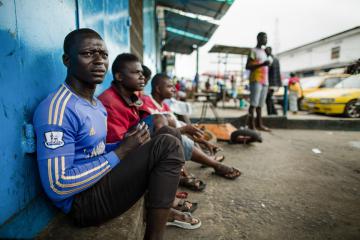
UNCTAD
The social and economic disruption of the COVID-19 pandemic is impacting countries’ efforts to improve livelihoods and achieve the Sustainable Development Goals (SDGs).
WHO
Kampala – The COVID-19 pandemic has strained health systems and disrupted essential health services in Africa. Countries are working to restore and strengthen key services to better withstand shocks and ensure quality care.
Thought for Food
The novel coronavirus (Covid-19) continues to spread rapidly across the world. While lockdowns and curfews may help in containing the pandemic, they may also lead to damage in the “stomach infrastructure” of many, and, in the worst-case scenario, a severe food crisis with a rise in hunger and malnutrition.
Fox Wilmington
(CNN) – There are several COVID-19 vaccines on the market and many more in the pipeline, but making enough vaccine doses for the entire world could take years due to manufacturing challenges.
UNICEF
As COVID-19 outbreak worsened, demand for supplies to combat the virus sharply increased, leading to market constraints, pricing volatility, export bans and logistics barriers.
CGD
The U.S. has donated 46 million doses to developing and other countries separately from domestic supplies, according to UNICEF. South Korea has concluded a swap deal with Israel to borrow surplus vaccines. However, the number of doses available under these and other arrangements is far less than that needed by countries around the world.
UNICEF
Resilience and adaptability - Facing an unprecedented global health emergency, UNICEF supply colleagues worked together to overcome challenges and remained focused on their common goal of delivering critical supplies to help realize children’s rights to health, nutrition, water, education and protection.


